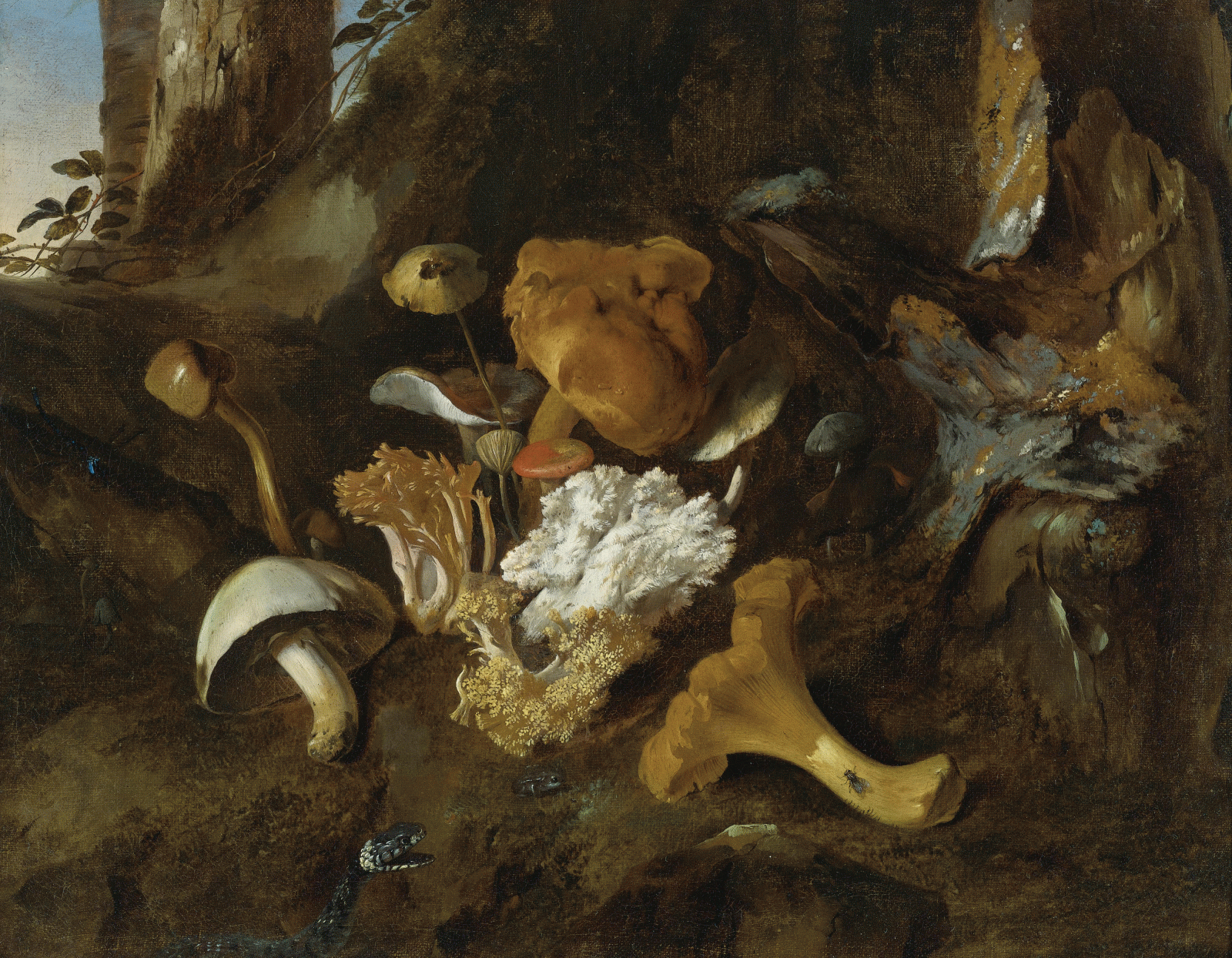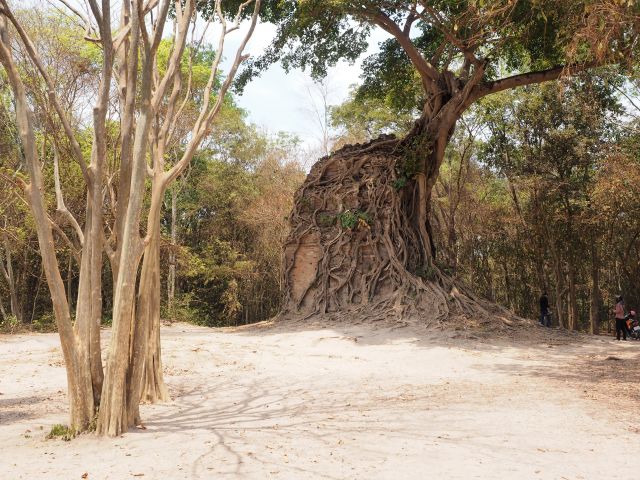4A Lab Seminar
Lucas Vanhevel: Fungi in the Early Modern Low Countries: Image-forming, Ethnomycology and Beyond

Otto Marseus Van Schrieck, Forest floor still-life with mushrooms, butterflies and a snake, ca. 1657, oil on canvas, 32,6 x 41,2, sold at Sotheby's, New York, 27 Januar 2011, lot 241
Even in the current climate of reactionary academic renegotiation of the disastrous traditional relational ontology of Man and nature, Fungi, comprising a natural kingdom of their own, as ubiquitous and essential to life as we know it as Plantae and Animalia, are still strongly neglected. Fungi are in fact more closely related to the kingdom of Animalia we belong to, than to Plantae. Not being able to photosynthesize on their own, they share a crucial aspect of the human condition, always and forever having to be dependent on plant intermediaries. As natures primary recyclers, disassembling large molecules into simpler ones, fungi play a vital and indispensable role in the web of life. While recent scientific studies of fungi by authors like Suzanne Simard, Paul Stamets and Peter Wohlleben have been enlightening as to the crucial role fungi play and have always played in ecosystems and life in general, comprehensive approaches from cultural studies have been all too few and far in between.
With my research, it is my intention to contribute to filling this gap. Exploring the presence of this seemingly ever elusive natural kingdom within defined chronological and geographical boundaries I want to elucidate the vastly unstudied ways in which fungi have been entangled in cultural history. First, I want to approach the subject from my training as an art historian, charting and examining as much of the visual culture of mushrooms within this defined timeframe and geographical delineation as possible. Second I want to explore the subject from an ethnomycological approach, studying the ways in which early modern people have noticed and interacted with these organisms. And third I want to go beyond both art history and ethnomycology to study the vast ways in which fungi have been present and influential historical actors in this area and period even without anyone noticing directly.
Lucas Vanhevel received his MA in Art History at the university of Ghent, Belgium, with a thesis on mycological illustration in the early modern Low Countries, titled Op het Tooneel der Campernoelien: Mycologische illustratie in de Nederlanden: 1550–1700 (EN: The theatre of mushrooms: mycological illustration in the Netherlands 1550–1700). Lucas' work focuses primarly on fungi and mushrooms in culture-historical entanglements.
09 dicembre 2019, ore 17:00
Staatliche Museen zu Berlin – Preußischer Kulturbesitz
Villa Gontard
Stauffenbergstraße 41
10785 Berlin
Avviso
Questo evento viene documentato fotograficamente e/o attraverso riprese video. Qualora non dovesse essere d’accordo con l’utilizzo di immagini in cui potrebbe essere riconoscibile, da parte del Kunsthistorisches Institut in Florenz a scopo di documentazione degli eventi e di pubbliche relazioni (p.e. social media) la preghiamo gentilmente di comunicarcelo.



